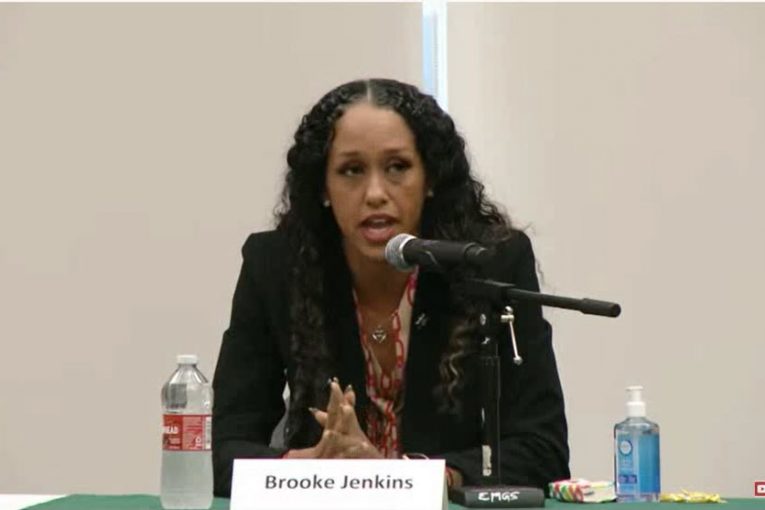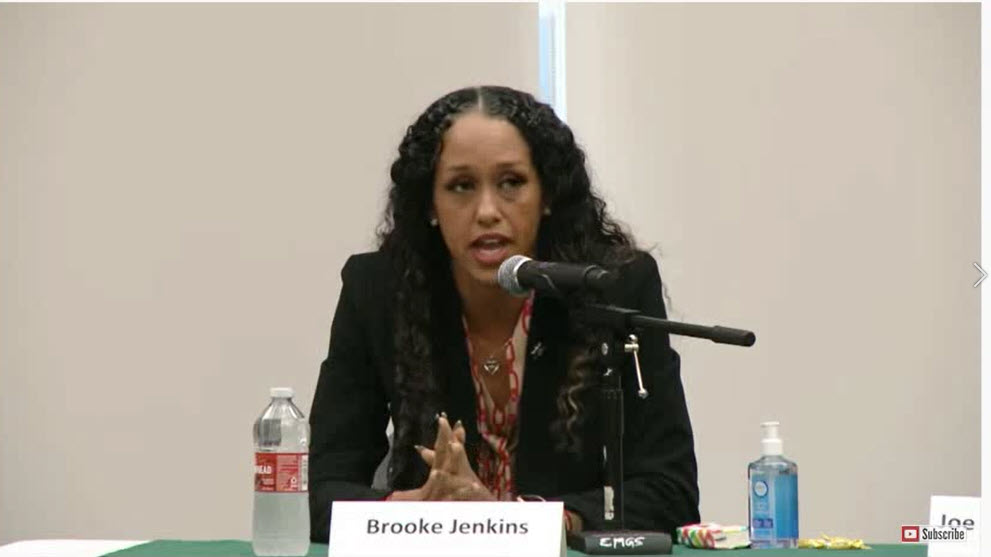

By David M. Greenwald
Executive Editor
San Francisco, CA – In a stunning move, the SF Chronicle blasted the DA field, blasted the appointed incumbent and refused to endorse anyone, arguing: “S.F. needs a generational talent to make a difference as D.A. These candidates aren’t that.”
While they aimed their ire at the whole field, clearly in the cross hairs is the appointed incumbent who has actually been doing the job for the last several months.
The Chronicle pointed out, “San Franciscans have long made it clear that they don’t want crimes born of poverty, addiction or mental illness punished with jail time. It’s also evident, however, that it’s those exact crimes — car break-ins, petty shoplifting, public drug use, along with visible homelessness — that are driving much of the city’s current unrest.”
They further note, “When California voters passed Proposition 47 in 2014, they essentially told cities like San Francisco that we can no longer use jails to warehouse our social ills.”
The problem that the Chronicle doesn’t seem to grasp as it asks “what the next district attorney is supposed to do about this quandary” is that perhaps the answer lies beyond the DA—and turning out the previous DA made things worse, rather than better.
Instead the Chronicle argues that locking people up for poverty and addition “results in racial bias and poor outcomes,” while “letting chaos reign in the streets clearly isn’t working either.”
John Hamasaki, they noted, in an interview, “acknowledged the precarity of downtown’s economic ecosystem absent immediate intervention.”
For him, “He stressed accountability for repeat offenders while continuing recalled District Attorney Chesa Boudin’s work of pursuing alternatives to incarceration for those who commit low-level nonviolent crimes.”
They add, “He maintained that his personal experience as a victim of bigotry uniquely positioned him to take on anti-Asian violence in the city while simultaneously reassuring reluctant members of the Asian American community that their safety and a more equitable criminal justice system don’t have to be mutually exclusive.”
But the Chronicle dismisses Hamasaki, noting, “If Hamasaki had a track record of public service as nuanced as his interview, we would seriously consider an endorsement. But he doesn’t.”
Instead, they hold him accountable for “his penchant for lobbing bombs on Twitter” and his “his former platform on the Police Commission has alienated much of the city’s political establishment.”
He would be challenged, they argue, with running the DA’s office with “a history of public spats with police Chief Bill Scott and Mayor London Breed.”
They write, “If there are advantages to adversarial relationships with either, Hamasaki wasn’t able to identify them.”
In short it seems the Chronicle probably most agrees with Hamasaki, but sees his history and temperament as ill-suited to hold the crucial office at this time.
In the meantime they blast Interim DA Jenkins noting, she “was perhaps the least open about the performative aspects of the job she’s done thus far.”
They note, “From the start, Jenkins has couched her aggressive posture in the need for more prosecutorial discretion in response to the city’s woes — a reasonable-sounding position.”
But they counter that “in a place where nonviolent property crimes are the dominant source of angst, why make a show of prosecuting minors as adults for violent crimes that aren’t happening or reiterate silly Fox News talking points about ‘rainbow fentanyl’ if not to send messages?”
They argue that charging and crime rates are similar between her and Boudin, and, “The major difference between the two camps has been one of tone. Frankly, if that tone helps provide a sense of public calm until the city can ramp up its safety net, we’re OK with that.”
But they argue, “That strategy, however, rests on trust — something Jenkins has done little to engender in her brief but tumultuous political career.”
They blast her for the failure to disclose payments by a nonprofit linked to the Boudin recall campaign.
They add, “Is her proposed ‘war on fentanyl’ calculated bluster or the substance of her ideology? Because where there is human misery there is always another drug in wait — and those willing to peddle it.”
They argue that San Francisco “needs wholesale systemic changes and a district attorney willing to say as much. Jenkins, thus far, hasn’t. And we’re not confident she will if the political winds don’t allow for it.”
“It would take a generational talent to succeed under the conditions San Francisco has placed its district attorney,” they write. “None of these candidates are that; all are deeply flawed. Based on what we’ve seen and heard, we can’t pretend that any of them will make a meaningful dent in the city’s issues. And so we won’t — and are withholding our endorsement accordingly from this race.”
Each side may well take out of this editorial what fits their agenda. Hamasaki may well cop to his shortcomings—I think he would have preferred someone else step up to challenge Jenkins and then volunteered for the job when no one else emerged.
I am frankly more concerned that the Chronicle has doubled down on the notion of the catastrophic position that San Francisco finds itself in even as it recognizes Jenkins’ shortcomings.
The reality is that the worst problems in San Francisco have little to do with who the DA is and the notion that locking a bunch of people up for nuisance level crimes is what spawned mass incarceration in the first place.
They should turn their ire to the political leaders in San Francisco and elsewhere because the problems faced by that community are the failure to provide decent housing and the failure to address social ills like mental illness and drug addiction—things that should be handled outside of the criminal legal system.

